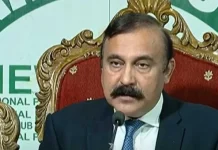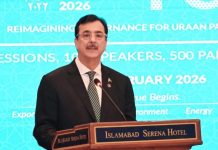ISLAMABAD: Ahead of the 29th United Nations climate conference, also known as COP29, in Baku, Prime Minister Shehbaz Sharif has called for “redefining” the global climate finance framework to “effectively meet the needs of vulnerable nations”.The premier made these remarks while addressing the Climate Finance Roundtable Conference, which was attended by multiple global leaders, held on the sidelines of “World Leaders’ Climate Action Summit” of the COP29. While elaborating the purpose of the roundtable, PM Shehbaz briefed the participants that it was intended to foster new thinking on an old problem that was becoming complicated on all the international climate forums without yielding substantial results. He emphasised the urgent need to build momentum for reforming international financial architecture, “forging a path where no nation is left behind in the global response to climate change.” PM Shehbaz called climate financing an “urgent need of the hour”, stating that developing countries need to deliver Nationally Determined Contributions (NDCs) and “need an estimated $6.8 trillion by 2030 to implement less than half of their current NDCs.” He underscored that the donor countries should fulfill their commitment to provide 0.7% of their gross national income as developing assistance and capitalise existing climate funds. Furthermore, the prime minister said debt cannot become the “acceptable new normal” in climate financing which was why the world should focus on non-debt financing solutions enabling developing countries to fund climate initiatives without depositing an additional burden. He explained that financing in the form of loans further enhance the debt of developing nations and potentially pushes them towards “mounting debt traps” which he referred to as “death traps”. Pakistan can understand the agony and pain of other vulnerable developing countries. as it had faced two devastating floods and still recovering from the loss, he said as he highlighted Pakistan’s recent experience with devastating floods. “In order to spur some transparency and coordination into the financial commitments made to the developing countries on climate transfers, Pakistan alongside many other developing countries call for stronger, more equitable climate finance mechanisms under the UNFCCC,” he added. He suggested a mechanism be set up to measure the unfulfilled pledges, fragmented at an incomplete landscape of climate funds to developing countries. “What I call INDCs whereby major historic emitters should account for climate finance commitments for both mitigation and adaptation pledges reflecting their proportionate responsibilities,” he added. The prime minister also highlighted challenges to developing countries in embracing clean energy transition to offset their carbon emission from power sector. He mentioned that the developing countries looking to enable energy transition should also get preferential capacity and technical assistance in fast tracking consortium financing through various financial instruments. He suggested the UNFCCC to setup a committee to review internationally-determined contributions (IDCs) periodically. On arrival at the summit venue, UN Secretary-General Antonio Guterres and President of Azerbaijan Ilham Aliyev welcomed the prime minister.






















